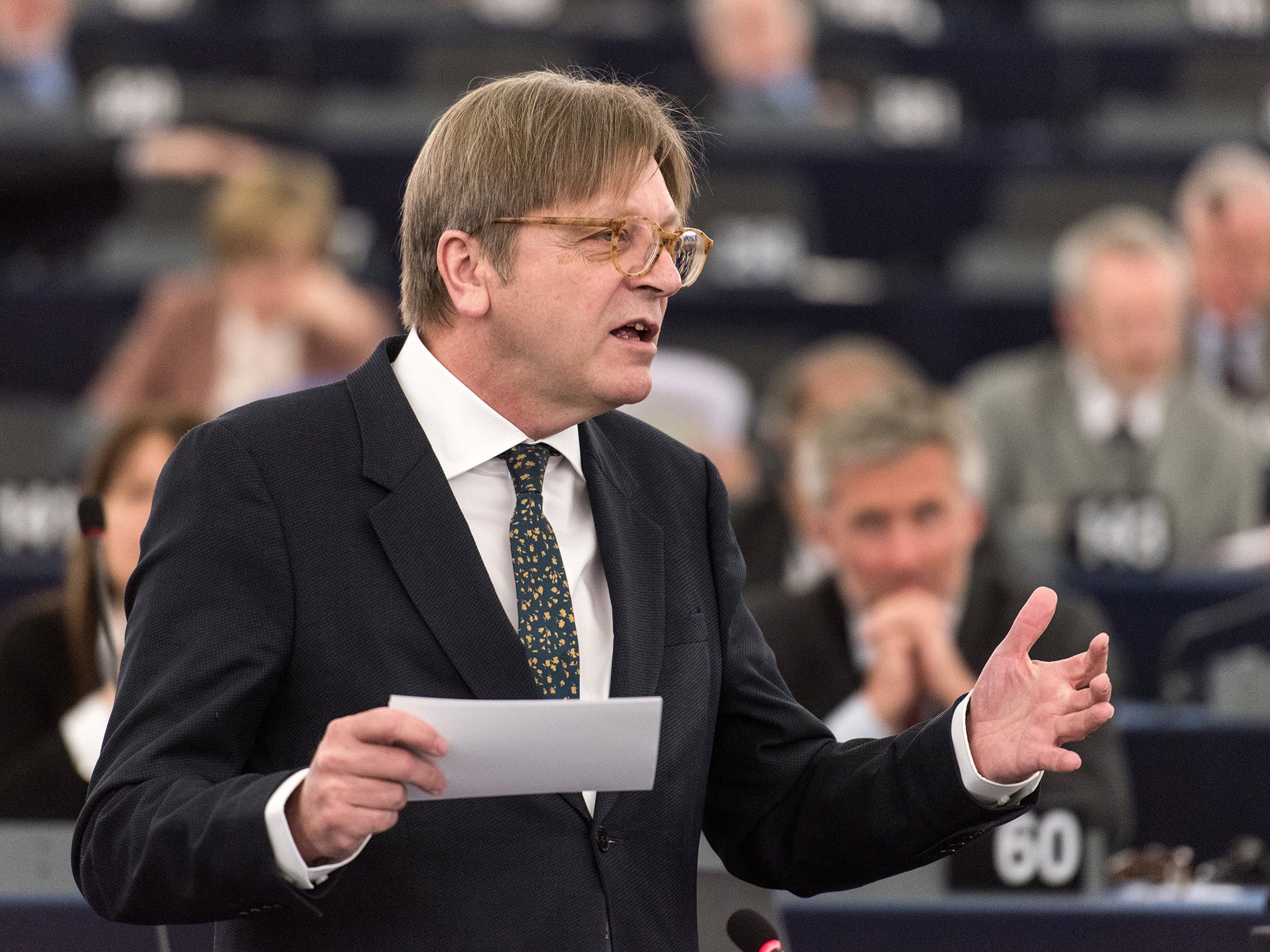Your support helps us to tell the story
From reproductive rights to climate change to Big Tech, The Independent is on the ground when the story is developing. Whether it's investigating the financials of Elon Musk's pro-Trump PAC or producing our latest documentary, 'The A Word', which shines a light on the American women fighting for reproductive rights, we know how important it is to parse out the facts from the messaging.
At such a critical moment in US history, we need reporters on the ground. Your donation allows us to keep sending journalists to speak to both sides of the story.
The Independent is trusted by Americans across the entire political spectrum. And unlike many other quality news outlets, we choose not to lock Americans out of our reporting and analysis with paywalls. We believe quality journalism should be available to everyone, paid for by those who can afford it.
Your support makes all the difference.Theresa May has been ridiculed in the European Parliament after her Government took credit for two major EU regulations in the space of a week – without mentioning where the laws had come from.
The Prime Minister spent part of last week hailing the introduction of a ban on credit card charges, as well as mandatory fees for plastic bags in shops, as a win for consumers and the environment.
But despite Conservative-branded publicity being prepared for social media and a major set-piece speech about the environment off the back of the latter policy, the two laws were in fact EU regulations and directives.
The irony of the party delivering Brexit trumpeting the policies imposed by Brussels was not lost on Guy Verhofstadt, the European Parliament’s Brexit coordinator, who said there was clearly “widespread” confusion in Britain over the role of the EU.
“I see the confusion is a little bit widespread in Britain at the moment. Michael Gove for example has forgotten that the ban on plastic bags is an EU regulation,” he said, speaking on Tuesday morning in Strasbourg.
“The Prime Minister, Ms May, doesn’t know, apparently that the abolition of charges on credit cards is a consequence of a directive of the EU.”

Mr Verhofstadt also made light of the “whole hilarious thing about passports” in Britain – which it turns out are not stipulated to be any particular colour by EU regulations, despite claims by Brexiteers and pledges to bring back blue covers after Britain leaves the bloc.
He also joked about Nigel Farage’s meeting with EU chief negotiator Michel Barnier, arguing that the former Ukip leader seemed “disorientated” after the event.
“I don’t know what he put in the coffee or the tea of Nigel Farage because he comes out of this meeting and he backs a second referendum!” he told MEPs
“I say what substance has been put in that tea, or that coffee. And then a poll comes out and five minutes later he’s against this second referendum.”
A spokesperson for the UK’s Department for Environment, Food and Rural Affairs disputed the claims about EU regulation being the source of the plastic bag charges.
“It is not true to claim that our plastic bag charge is a result of EU regulation. We set out our plans before the EU and we have gone further than EU regulations require,” she said.
Mr Farage signalled that he backed a second referendum shortly after the meeting at the European Commission in Brussels. He said his mind was changing and that another vote could settle the issue for a generation, with a larger number of people voting to Leave the second time.
Mr Verhofstadt also welcomed draft guidelines set to be published by the European Council that show the EU will tighten up its conditions on the UK for negotiations about the transition period.
The bloc is set to demand an explicit veto on British trade deals signed with other countries for around two years after Brexit, while EU free movement will be extended until the end of the transition period, with no controls on immigration until 2021. After that point citizens living abroad will be given a special status, as previously agreed.

Join our commenting forum
Join thought-provoking conversations, follow other Independent readers and see their replies
Comments